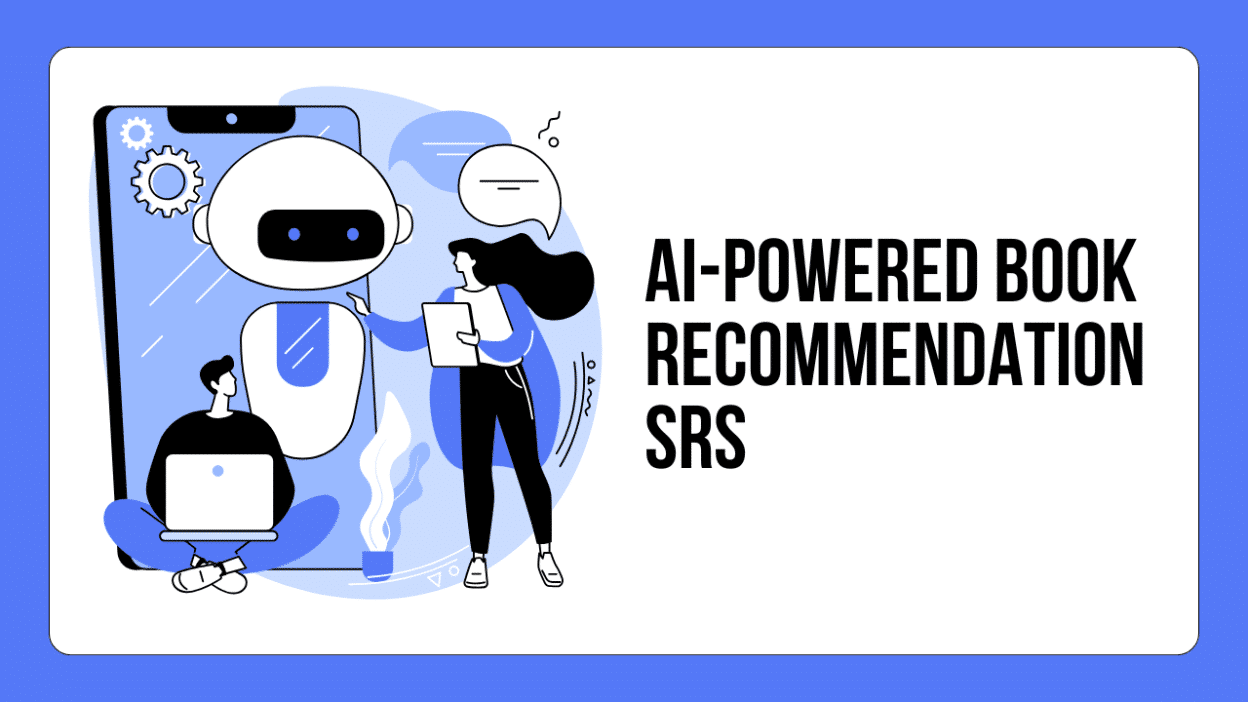Project Overview
Finding the perfect book feels like magic—when a story grabs you and doesn’t let go. This AI-powered book recommendation system makes that happen, learning what you love and suggesting books you’ll actually want to read.
No random picks, no endless scrolling. The AI analyzes reading habits, favorite genres, past reads, and even sentiments from book reviews to refine recommendations. The more it’s used, the better it gets. Personalized book lists, a rating system, and a feedback loop keep everything tailored to individual tastes.
The tech runs on React and Node.js for a smooth user experience, powered by machine learning models running on TensorFlow and PyTorch. Natural language processing helps the AI understand user reviews, making smarter suggestions. Hosting is on AWS or DigitalOcean, with Docker for easy deployment.
Security keeps profiles and preferences private, while recommendations stay accurate without invading personal space. Future updates include a mobile app, social sharing, and even deeper AI-driven personalization. Smart, fast, and built for book lovers—because the right book at the right time changes everything.
Introduction
Purpose
The goal of this project is to build an AI-powered book recommendation system that suggests books to users based on their reading preferences, genres, past reads, and user feedback. The system will use machine learning techniques, including natural language processing (NLP), to enhance the quality and personalization of recommendations.
Scope
- Users can create profiles and enter their preferences (e.g., genre, author, themes).
- The AI system recommends books based on historical data, reviews, and user behavior.
- The system uses sentiment analysis to understand user feedback on books.
- Users can rate books and give feedback to refine future recommendations.
Target Audience
- Book lovers who need personalized book recommendations.
- Readers looking to discover new books based on interests.
- Book clubs and reading communities.
Definitions, Acronyms, and Abbreviations
- Recommendation Engine – The system responsible for suggesting books based on user data and preferences.
- NLP – Natural Language Processing, a technology for analyzing user reviews and extracting meaningful data from text.
System Features
User Profile Management
- Users can create, edit, and view their profiles.
- Users can specify book genres, authors, and themes of interest.
Book Recommendations
- The system suggests books based on user preferences and historical data.
- The recommendations improve over time as the system learns from user interactions.
Rating & Feedback System
- Users can rate books they’ve read.
- The system uses ratings and feedback to refine future book recommendations.
Sentiment Analysis of Reviews
- The AI uses sentiment analysis to process reviews and extract valuable insights to influence recommendations.
Search and Filter
- Users can search for books by title, author, or genre.
- Filters to narrow down recommendations based on user preferences (e.g., genre, author).
Personalized Recommendations
- Books are recommended based on the user’s reading habits, reviews, and preferences.
- The system learns from user behavior to improve suggestions.
Privacy and Security
- User profiles and feedback are stored securely.
- Recommendations and ratings are private unless the user chooses to share them.
Technology Stack
Frontend
- React.js / Vue.js – For building a dynamic and user-friendly web interface.
- HTML, CSS, JavaScript – For page layout and styling.
Backend
- Node.js (Express.js) / Django – To handle the logic for recommendation algorithms, user profiles, and feedback.
- Python (Flask/Django) – To integrate with AI/ML models for book recommendations.
Database
- PostgreSQL / MySQL – To store user profiles, book data, and feedback.
- MongoDB (optional) – For storing unstructured data like book reviews.
Machine Learning and AI
- TensorFlow / PyTorch – For developing recommendation models.
- Scikit-learn – For building simpler recommendation algorithms using collaborative filtering or content-based filtering.
- Natural Language Toolkit (NLTK) / SpaCy – For text processing and sentiment analysis of reviews.
Hosting & Deployment
- AWS / DigitalOcean – For cloud hosting.
- Docker – For containerizing the app to ensure smooth deployment.
System Architecture
High-Level Overview
- Frontend: A responsive web interface where users interact with the system, provide preferences, and view recommendations.
- Backend: Handles user data, book information, and the recommendation engine.
- AI/ML Engine: Uses collaborative filtering and content-based filtering to provide personalized recommendations.
- Database: Stores user data, ratings, and book metadata.
Flow of Data
- The user creates a profile, specifies preferences, and rates books they have read.
- The AI recommendation system analyzes data (user preferences, book ratings, and reviews).
- Personalized book recommendations are displayed on the user interface.
- Users rate books they’ve read, and the feedback is incorporated into future recommendations.
Implementation Guide
Development Environment Setup
- Install Node.js/Express.js/Django for backend development.
- Set up React.js/Angular for front-end development.
- Set up TensorFlow/PyTorch for building the recommendation algorithm.
Core Feature Development
- User Profile and Preferences – Implement profile creation and preference management.
- Book Recommendation Engine – Develop algorithms for collaborative filtering and content-based filtering.
- Sentiment Analysis – Integrate NLP tools to analyze user reviews and improve recommendations.
- Rating & Feedback System – Create a system where users can rate books and provide feedback.
Testing & Debugging
- Use Jest for frontend unit tests.
- Use Mocha/Chai for backend API testing.
- Test recommendation accuracy using different data sets.
Deployment
- Host the backend on AWS/DigitalOcean.
- Use Docker to deploy the application in containers for scalability.
Testing & Deployment
Functional Testing
- Verify the accuracy of book recommendations.
- Ensure the rating and feedback system works as expected.
Security Testing
- Ensure secure handling of user data and privacy.
- Test for authentication vulnerabilities.
Deployment
- Deploy the backend on cloud servers and host the front end on platforms like Netlify or Vercel.
- Set up monitoring for application performance and feedback.
Future Enhancements
- Mobile App Support – Build Android/iOS apps for easy access to recommendations on the go.
- Social Integration – Allow users to share recommendations with friends or on social media.
- Advanced NLP Models – Integrate deep learning models for even more personalized recommendations based on sentiment analysis and review content.
Conclusion
Books have a way of finding the right person at the right time. AI just makes it faster and more personal. No more wasting time on books that don’t click. Smarter recommendations, better reads, and a system that grows with your taste—because every reader deserves their perfect story.




